How is it different from other types of counseling?
- Traditional Psychological (Humanistic) Counseling – Traditional psychological counselors make an earnest attempt to help hurting people find wholeness as they employ one (or more; a kind of “mixing and matching”) of over 200 different, sometimes conflicting, psychological approaches for diagnosis and treatment. It is important to note, however, that not only were the often well-known psychologists and psychiatrists who developed these theories not Christians, but that in most cases their moral foundations and approach to the human condition were antithetical to Biblical truth.
- Christian (Integrated) Counseling – “Christian” counseling attempts to assimilate Christian principles into the plethora of psychological approaches. The resulting counsel often resembles neither the original model nor biblical truth.
- Biblical (Biblical Sufficiency-Based) Counseling – The biblical counseling movement is founded on the premise that God, as Creator, has solutions to man’s problems and that His solutions are more effective than those devised by man (Colossians 2:1-10). The solutions for man’s brokenness and the guidance for living a full, abundant life are found in God’s Word. The biblical counselor’s dependence on the Holy Spirit, prayer and Scripture makes biblical counseling distinctly different from and significantly more effective than the other approaches.
A few practical examples of the difference between Biblical counseling and psychological counseling approaches:
- The basic problem of hurting people is sin – sin committed either by or against the person. Sin causes separation from God, whether it is an act of commission, omission, or a sinful response to another’s sin against them. Their pain in and of itself is not the problem, but only a reflection that there is indeed a root problem.
- The purpose for counseling is for each individual to become more like Christ, godly in all spheres of life (2 Peter 1:3-10, Romans 8:28,29). God often uses trials and suffering to accomplish this goal (James 1:2-4).
- The counselor guides the counselee into a closer relationship with God and others (Matthew 22:36-40) rather than being a mirror to reflect, verify and affirm the counselee’s thoughts, feelings or actions.
- Counseling is a solution-based, results-driven process of helping. God has always provided a way to handle every circumstance in which a person finds himself so that he may respond in a righteous manner (1 Cor 10:13-14).
- The majority of our emotional, mental and physical difficulties have spiritual roots (Psalm 1).
- A dependence on the Holy Spirit and the use of Scripture is essential to teach, rebuke, correct, or train (2 Timothy 3:16) the counselee(s) toward a full and abundant life.
- The counselor’s role is to discern the spiritual root being manifest emotionally, mentally and physically rather than affirming the counselee’s innate goodness (Jeremiah 17:5-10).
- The struggles people carry with them are frequently very involved, difficult, and complex, while the root of the problem and the process that leads to change is simple (Psalm 119:133, Proverbs 3:5-8).
- All Christians are qualified to counsel one another at some level, based on their knowledge of the Word and their experience in application of that Word to their own lives (Romans 15:14; Galatians 6:1-2, John 5:22-30). Some Christians have specialized training to counsel their fellow-believers in specific, more complex issues.
- Counseling is to be sensitive, caring, encouraging, and at times confrontational (1 Thessalonians 5:14).
- Biblical counseling expects that transformation will take place in weeks or months rather than in years.
- Medication is a secondary and temporary option rather than a primary solution.
Biblical counseling training:

The seminars provide an overview of biblical sufficiency-based personal ministry, including what is biblical counseling and how do you do it.


The Master of Arts in Biblical Counseling is designed for those who desire to enhance ministry or teach at a college level with a focus in the area of counseling. The program requires 60 hours and is normally completed in five years. Students are grouped into cohorts in a modular format and pursue objectives, including a general knowledge of the Bible, a core of counseling classes, and an understanding of a theology that is biblical. Students are also instructed in the methods of research and writing.


